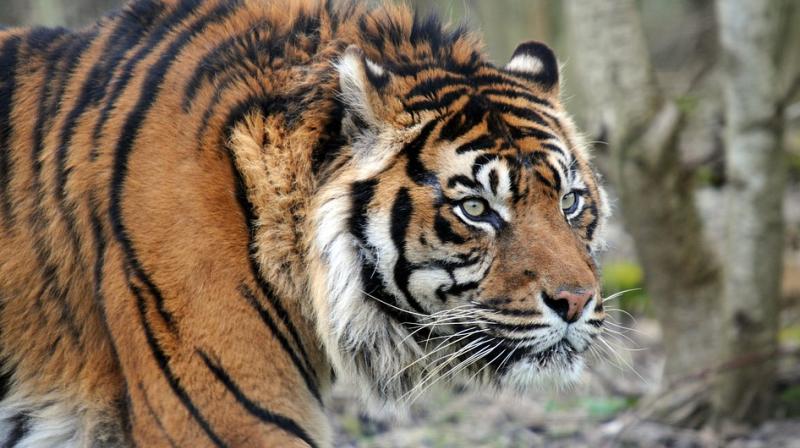30 per cent of world's natural heritage sites threatened by wildlife trafficking
This has driven species to the brink of extinction and put the livelihoods and well-being of communities who depend on them at risk.

New Delhi: A new WWF report published recently, urges for additional and immediate measures to halt the worrying trend in illegal trafficking for international trade of CITES-listed species in the world's most ecologically important places, including World Heritage Sites.
Known for their iconic beauty, geology, ecology and biodiversity, natural World Heritage sites across the globe support large populations of rare plant and animal species, including almost a third of the world's remaining 3,890 wild tigers and 40 per cent of all African elephants, and function as the last refuge for critically endangered species such as Javan rhinos in Indonesia and vaquitas, the world's smallest porpoise, endemic to Mexico's Gulf of California.
Yet, despite their recognized value and protected status, the report found that illegal poaching, logging and fishing occurs in nearly 30 per cent of World Heritage sites, driving endangered species to the brink of extinction and putting the livelihoods and well-being of communities who depend on them at risk.
"Natural World Heritage sites are among the most recognized natural sites for their universal value. Yet many are threatened by destructive industrial activities and our new report shows that their often unique animals and plants are also affected by overexploitation and trafficking. Unless they are protected effectively, we will lose them forever. Governments must redouble their efforts and address the entire wildlife trafficking value chain, before it's too late." says Marco Lambertini, Director General at WWF International.
"We urgently need more collaboration and integration between CITES, the World Heritage Convention and national authorities to lead a more coordinated, comprehensive response to halt wildlife trafficking - from harvesting of species in source countries, transportation through processing destinations, to sales in consumer markets."
Illegal harvesting of species in World Heritage sites degrades vital social and economic benefits.
More than 90 per cent of natural World Heritage sites support recreation and tourism as well as provide jobs. Many of these benefits are dependent on the presence of CITES-listed species in these sites. Illegal exploitation of wild species also alters the natural ecosystem.
In India, species such as rhinos, elephants, tigers and pangolins stand threatened by poaching including from World Heritage Sites such as the Kaziranga National Park, the Manas National Park and the Western Ghats.
Speaking on the issue, Ravi Singh, Secretary General and CEO, WWF-India said, "World Heritage Sites are universally recognized as the most important areas for the conservation of the Earth's biodiversity and are some of the last remaining strongholds for many rare and endangered plants and animals. However, inspite of being protected under international conventions, many of these sites continue to be threatened by poaching and other activities, which if not curbed immediately could lead to the extinction of some of these species. It is therefore our responsibility to work with the government agencies and local communities to address these issues and help retain the natural and cultural significance of such places for present and future generations."
Last year, WWF launched a global campaign, Together saving our shared heritage, working with governments and businesses to safeguard World Heritage sites by strengthening the implementation of the World Heritage Convention and pushing businesses to comply with the highest standards of responsible business conduct in or near sites.
A WWF report found nearly half of all natural World Heritage sites were under threat from harmful industrial activities like mining, oil and gas drilling, and construction of large-scale infrastructure, with millions of people impacted.

